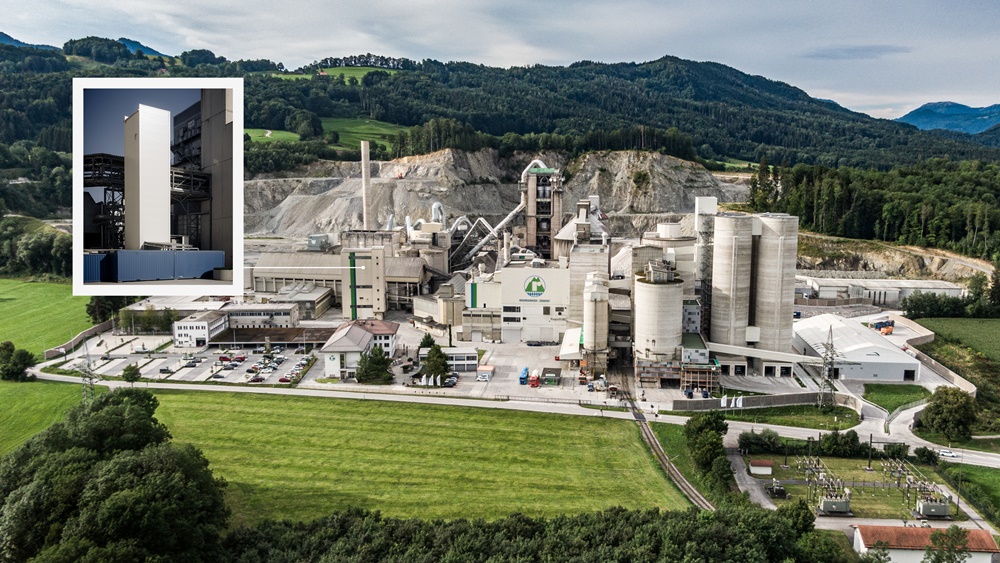P3 7-8/2022 en
Andritz & Rohrdorfer
Start-up of Germany's First CO2 Capture Plant
Sustainability

Andritz partner Rohrdorfer has started up Germany's first amine-based CO2 capture plant for cement plants at its main site in Upper Bavaria. This technology developed by Andritz will prospectively make a considerable contribution to CO2 reduction and thus to a sustainable circular economy. The special separation process recovers CO2 as a basic material for a large number of valuable intermediate products for further use in hygiene and pharmaceutical products as well as in the beverage and food industries.
Germany's first amine-based CO2 capture plant for cement plants started up.
“Andritz designed the separation process individually for us – the results are impressive. The captured CO2 is food grade and can therefore be used in a variety of ways,” said Dr. Helmut Leibinger, head of the Net Zero Emission Team at Rohrdorfer.
Andritz know-how for CO2 capture enables circular economy for Rohrdorfer
The ecological potential of the CO2 capture plant in Rohrdorf is enormous, considering that cement production generates around eight percent of the global CO2 emissions. Instead of escaping into the atmosphere, Andritz technology separates carbon dioxide from the cement manufacturing process and makes it available for further use or permanent storage.
“CO2 can be converted into basic chemical substances for further processing,” said Dr. Helmut Leibinger. “For this purpose, an experimental plant is operated in Rohrdorf that converts CO2 into formic acid. The formic acid is available to customers in the “Bavarian Chemical Triangle”, among others.”
“Our flagship project in Rohrdorf am Inn is a milestone for the circular economy in Germany. It shows what is already technically possible today. The demand for such innovations is correspondingly high,” said Andritz CEO Joachim Schönbeck.
Pilot phase successfully completed – target 1,500 t of CO2 captured daily
CCU (Carbon, Capture, and Utilization) will be used in this form for the first time on the German market in cement production. Considering all production-related optimizations, the German cement industry can save more than half of all CO2 emissions. For the remaining 40%, it needs processes like CCU to become carbon neutral by 2050. Rohrdorfer aims to produce climate-neutral cement as early as 2038. The partner companies are thus making an important contribution to achieving this CO2 target.
The pilot plant has been in continuous operation since August 2022. Operation was only interrupted for the duration of the annually recurring winter overhaul of the kiln line.
In the future, Rohrdorfer plans to increase the amount of carbon dioxide captured to 1,500 tons per day. Plans for capacity expansion and for a second plant at another Rohrdorf site are underway.








